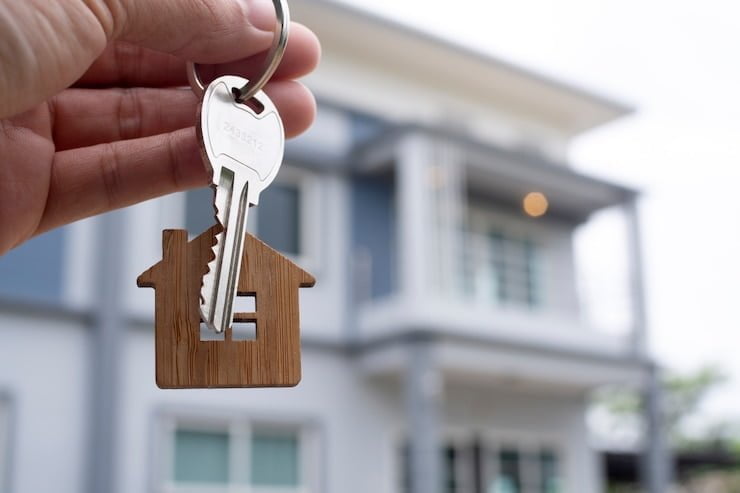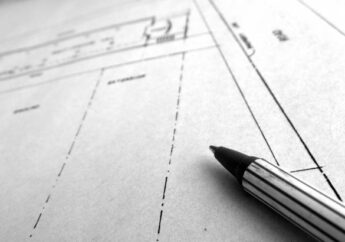How To Start The Process Of Buying A Home?
by Arnab Dey Real Estate 09 September 2022

Owning a home in the United States is the ultimate American dream. However, there are several moving parts involved in buying and that can make the process seem challenging, especially if it’s your first time buying a home.
You will need to find an agent, get the legal documents, and ensure you get every other thing right. PrimeLending St. Louis has great experience to get you started on the process of buying a home.
If you’re at that step where you know you want to buy a home, but you’re not sure exactly what to do next, then this article is for you.
In this article, we’ll explore what you need to do to qualify as a US homebuyer and examine the step-by-step process of buying a home.
Getting Qualified As A Homebuyer:

To be able to purchase a home, you need to be qualified for the process. Although state laws may vary slightly on a few aspects of the process, these principles apply throughout the country. Here are the main things you need to know about getting qualified as a homebuyer.
1. Have a great credit score
Your credit score as a potential homeowner is a great indicator of how well you’ll be able to meet the financial requirements of buying a home. Buying a home is no small investment, and mortgage lenders are only looking for the best managers of their finances to give loans to.
A high credit score indicates that you’re spending wisely and maintaining good finances. Usually, a credit score of 620 is good enough for a conventional loan. And even if your credit score is lower than this, there are still other loan options for you to consider.
2. Maintain a low debt-to-income ratio
As a private individual, your debt-to-income ratio is the ratio of your monthly financial obligations to your monthly income. These financial obligations may include your credit and debit card payments, bills, family expenses, home expenditure and maintenance, et cetera.
Having a low debt-to-income ratio shows a mortgage lender that you have enough money to commit to repaying your home loan.
3. Set aside a suitable down payment
A down payment is a sizable lump sum that a homebuyer pays while getting a new home. This sum is a percentage of the house’s total value, usually around 10 percent. The amount that a homebuyer will need to pay as a down payment will depend on several factors, such as the quality of the home and the package available to the homebuyer.
Some programs such as FHA loans can cover up to 96.5% of the cost of a house, meaning that the homeowner only has to pay 3.5% of the cost of the home as a down payment. When you want to buy a home, you must determine a down payment that you’re comfortable with.
4. Have a stable and adequate source of income
As a homebuyer, you’ll need to convince a mortgage lender that you’ll have enough funds in the foreseeable future to repay the loan. A crucial aspect of this is to show them that you have a steady and adequate source of income.
Whether you’re an employee or a business owner, you’d still need a decent track record that shows you’ll be able to afford a mortgage even with your current financial obligations.
Steps To Buying A House:

Buying a home involves following this step-by-step process:
1. Get your finances in order
Buying a new home is no small decision, including financially. You’ll need to be sure that you’re financially stable enough to take on the added responsibility of buying and maintaining a home.
That means learning about your credit score, debt-to-income ratio, liquid assets, and other financials. You’ll need to carefully pore over these details, as they will help you understand if you’re in a financial position to buy a home.
2. Determine what kind of down payment you can afford
When you’ve done your finances, you should have a pretty good idea of how much you can afford to spend on a house. A down payment is a significant single investment, so it’s critical to understand if you’re ready to make one and just how much you’re ready to set aside for it.
3. Have a wish list of what you’d like in your new home
As a homeowner, it’s important that you enjoy the result of your home-buying decision. This means you must determine what is essential for you in the new home. Write it down whether it’s a yard, pool, or garden. We all have our preferences, and lots of small details can determine whether you enjoy your home or not.
4. Shop for the right mortgage
There are several mortgage options in the market, but you’ll need to figure out which is best for you. Your mortgage option affects many aspects of your homebuying, including qualification, the amount of down payment you’ll pay, and your interest rate.
The main types of loans are conventional loans, FHA loans, VA loans, jumbo loans, and renovation loans. You’ll need to determine which option is best before making a decision.
5. Get a loan preapproval
Loan preapproval shows how much mortgage you’re approved for based on your credit score and financial position.
A loan preapproval lets you and your real estate agent know what kinds of homes you can afford in real, hard numbers. You’ll need to apply with your lender and answer a few questions to get loan preapproval.
6. Find a real estate agent
When you’ve determined how much you can afford to pay for a home, you can begin shopping for a real estate agent. This is an important stage of the process. A great real estate agent will help you navigate the ins and outs of the market to get an excellent deal.
7. Start house hunting
With your real estate agent, you can begin looking for houses that fit your pockets and needs. Here, you’ll need to refer to your wish list to determine which features appeal to you the most.
Make the most of any walk-ins, and take pictures if you feel like it. This process takes some time, but finding the right home is well worth the effort.
8. Make an offer on a house
An offer is an official letter detailing how much you’re willing to pay for a home, including other personal details such as your name and address.
Your real estate agent and a real estate attorney are needed during this step. Usually, you’ll have to do some negotiations with the owner, but once you’re done, you’ll be ready to write your first check!
Ready To Buy A Home?
Buying a new home can seem like a challenging process. But by following the right steps and understanding what you want from the get-go, you greatly improve your chances of deriving the best value. When it’s all done, you’ll have the satisfaction of becoming a homeowner.
Read Also:



































































































